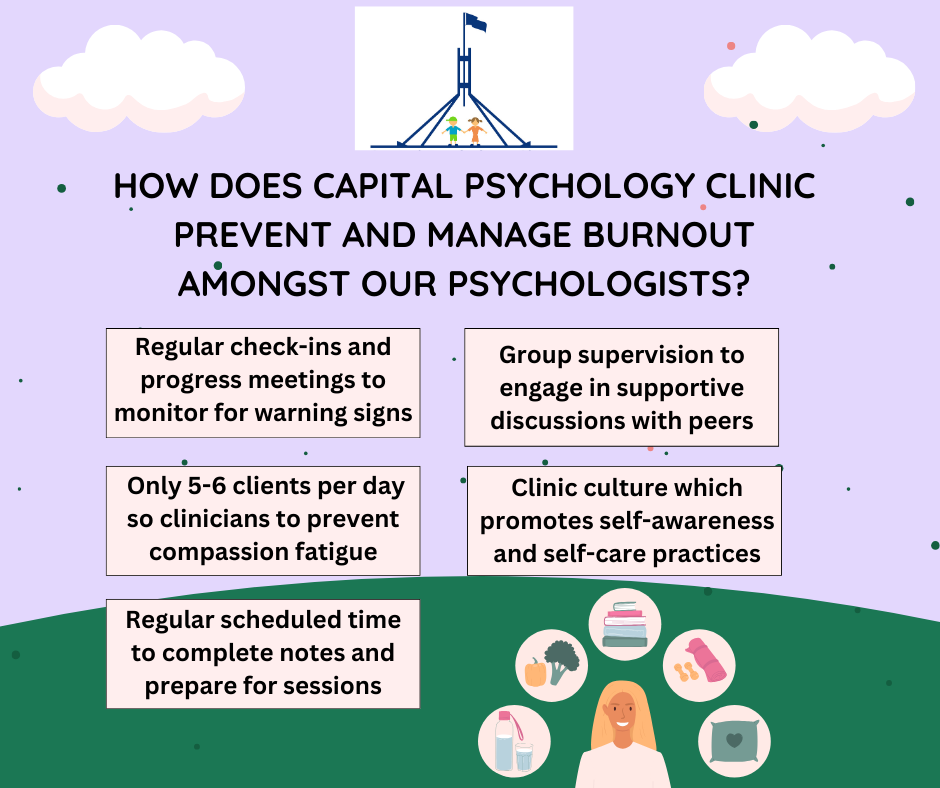In light of the cost-of-living crisis, pandemic and natural disasters, Australians have been seeking psychological support more than ever before. Research on a broad range of health professionals has shown that psychologists are particularly vulnerable to stress-related difficulties, with estimates suggesting between 40-85% of surveyed psychologists reporting compassion fatigue and burnout (Duxbury & Colleagues, 2009).
How Capital Psychology Clinic helps to prevent and manage burnout amongst its psychologists
Burnout is defined as a state of physical, emotional, and mental exhaustion caused by prolonged stress and overwork. It is often characterised by a broad range of signs and symptoms including feeling overwhelmed, helplessness, physical fatigue, dread for the week ahead, and reduced professional efficacy. At Capital Psychology Clinical (CPC) we make it our priority to implement policies and procedures that prevent burnout among our clinicians and offer services to help them recover from burnout in the event it occurs. Some of the ways we support our clinicians include:
- Monitoring the Warning Signs: Given it can be challenging to identify signs of burnout within ourselves, through frequent check-ins and regular progress meetings, our clinical directors can help identify and manage burnout among their psychologists early.
- Reduced Caseloads: To ensure they can offer a high degree of empathy, support, and therapeutic listening, while also maintaining their own wellbeing, our clinicians see between 5-6 clients per day at Capital Psychology Clinic.
- Flexible Times/Days: To ensure they have sufficient time to complete their clinical notes and plan/prepare for future sessions, our clinicians have regular scheduled time during the day and the opportunity for flexible work-from-home arrangements through telehealth.
- Group Supervision: The importance of social support in managing stress and burnout is well documented. Capital Psychology Clinic facilitates regular group supervision for clinicians where they can educate themselves and engage in open discussions with their peers in a supportive and collaborative environment.
- Self-care: At Capital Psychology Clinic, our clinician directors have created a clinic culture that promotes self-awareness and self-care practices among our psychologists. This includes scheduled lunch breaks, skills to facilitate setting appropriate work/personal life boundaries, and team social events.

